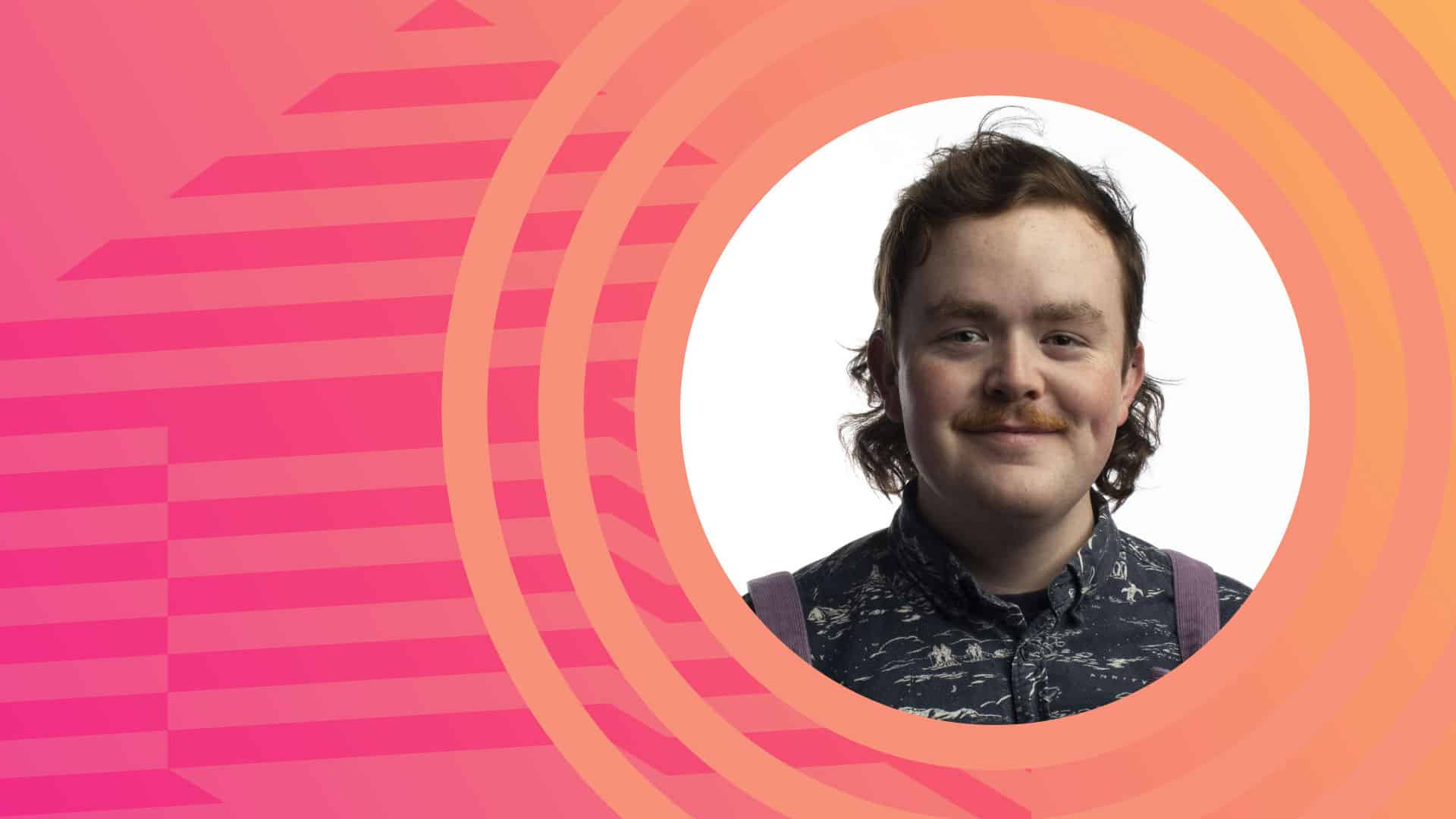
Maitiú is opening the dialogue between rural agricultural communities and queer spaces. Their work highlights (de)colonial queer loneliness and identity performativity in contemporary culture, and how it is informed by our own history. “Growing up Queer in West Cork has become the central focus of my artistic practice. As an interdisciplinary practitioner, my work explores the sexual politics of agricultural Ireland. Too often, Queer identity is presented as synonymous with the urban and metropolitan. I challenge these assumptions through my practice,” says Maitiú. As part of their residency here at Triskel, a member of our Marketing Team sat down with them to get an insightful and humorous glimpse into their upcoming exhibition.
Describe your art in three words.
Desperate, messy, and hopeful! In a tongue-in-cheek way, of course.
Your work inherently centres around the experiences of a queer individual growing up in a rural environment; what was it like for you growing up in West Cork?
For me looking back, I think it was a lonely experience because there wasn’t much outward-queer representation. In terms of growing up in a physical location, I really enjoyed it in terms of closeness to the natural and ecological. I look back on it now with quite romantic eyes, but while there, I certainly felt drawn to places that were more in keeping of who I wanted to be when I grew up.
Do you feel the perception of queerness in the Irish agricultural community has changed?
Yeah, I definitely think it has, massively. I always point to things like the Farmer’s Journal, which now has many stories of the cis gay men coming home to take over the father’s farm. I think in the last few years we see a lot more of a presence of the queer individual in the agricultural community, but I wonder what good does that do? Does it serve only to provide visibility, or are we actually welcomed in those spaces?
What was the biggest change for you after moving out of that rural community into the city?
It felt like a lot of learning happened because I had the space to figure myself out and grow into the parts of myself that maybe don’t exist as easy in cis-het dominant spaces. At the same time, it really came to the forefront that maybe I’m not made for this, for urban spaces. I live in a town now, and I’ll never get used to living beside a road. Although, following that over-subscribed idea of the urban centre as a site of safety, I think being here and being given time to invest in the self has helped me realise that queerness has existed for time immemorial in rural spaces. It just may not look like what we are taught it must look like; and that’s where I want to go.
Do you have a favourite method or material to create your art from?
Yeah, one thing that I find really generative is speculative fiction; the idea of re-examining the structures of social groups, sexual politics, or socioeconomics, through the guise of fiction. When you look in a mirror, and the mirror is cracked, it brings back two reflections. In that way, I feel speculative fiction really drives the practice and follows alongside the material exploration. I also find that it can be a space that people can latch onto; when something is fictional there’s less at stake, and when imagination is involved then it can lead to a lot more places. There’s great flexibility in fiction.
What has been the most special or meaningful exhibition you’ve done so far?
I’m going to go with the artist novel I wrote for my master’s thesis; One Day You Shall Only Speak to the Bees. It followed this individual coming to terms with notions of Ireland versus the actuality of Ireland, specifically with queer politics, policy, and shifts towards western superiority. It (the thesis) speculates a lot on things, but doesn’t bring answers. In many ways it was me reading myself; my own inherited romanticisation of Ireland. I found that to be a really meaningful experience to explore that through speculative fiction.
You won the Agility Award 2024, the 2025 Emerging Visual Artist Award, and you’ve been busy with multiple residencies and exhibitions so far this year; what’s next for you?
I’m starting a PhD in Galway soon! It’s called “Good Queers? The Future of Sexual Politics in Rural Ireland”, and then the qualifier is “research-led creative practice”. So, it’ll be academics and archival work with creative output. It examines the same general idea as my exhibition, but my exhibition is more personal as it explores the isolation felt when you’re absorbed into the pink-washing in neo-liberal Ireland, whereas for the PhD I want to examine that on a wider scale, removing the personal. The cis gay man is now readily accepted if he continues the patrilinear domination of agriculture in Ireland, and this is an idea that Leo Barsani writes about in The Gay Betrayal, of how with greater moves towards acceptance and safety, comes people jumping ship and forgetting their community and collaboration.
Any advice for fellow queer artists pursuing their passions?
Always be aware that worth cannot be drawn from how the work is consumed. For me, and a lot of other queer artists, worth is not judged from how you are consumed in certain institutions. Always give over to the mess.
Cats or dogs?
Cats would never work for the Gardaí! (stolen joke)

